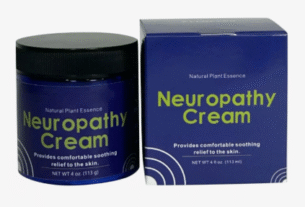Dental emergencies can occur at any age, but older adults often face unique challenges that require specialised attention. As people age, changes in oral health, systemic conditions, and medication use can increase the risk of dental complications. In Derby, recognising the distinct needs of geriatric patients during dental emergencies is essential to ensure timely, effective, and compassionate care.
Understanding Geriatric Dental Health
The oral health of elderly patients is influenced by multiple factors, including natural ageing, chronic diseases, and lifestyle habits. Common issues such as gum recession, enamel wear, tooth loss, and dry mouth can make older adults more vulnerable to dental emergencies. Additionally, conditions like diabetes, cardiovascular disease, and osteoporosis may complicate dental treatment and recovery.
It is important for dental practitioners to conduct comprehensive assessments that consider both oral and overall health. Geriatric patients often have complex medical histories, so coordinating with their primary care providers is crucial. Understanding the patient’s medications is particularly significant, as many drugs can affect saliva production, bleeding risk, and healing capacity.
Common Geriatric Dental Emergencies
Several types of dental emergencies are more prevalent among older adults:
- Tooth Fractures and Cracks: Age-related enamel weakening and previous restorations increase the likelihood of broken teeth.
- Periodontal Abscesses: Gum infections can escalate rapidly due to compromised immunity and chronic conditions.
- Loose or Lost Dentures: Ill-fitting dentures can lead to soft tissue trauma and impaired nutrition.
- Severe Toothache: Often linked to decay or pulp inflammation, requiring urgent attention to prevent systemic complications.
- Oral Trauma: Falls are more common among older adults, resulting in broken teeth or soft tissue injuries.
Prompt recognition and intervention are essential. Delays in treatment can lead to infections, systemic complications, or long-term functional impairment.
Emergency Care Strategies for Elderly Patients
Managing geriatric dental emergencies requires a nuanced approach, balancing pain management, infection control, and overall patient wellbeing. Here are key considerations:
- Pain Management: Older adults may have heightened sensitivity to certain analgesics due to liver or kidney function changes. Tailoring pain relief to their medical profile is essential.
- Infection Control: Rapid treatment of abscesses or other infections is critical, as older patients are at higher risk of complications. Antibiotic selection should consider existing conditions and possible drug interactions.
- Restorative Care: Conservative approaches, such as splinting or temporary restorations, may be preferable for frail patients to avoid lengthy procedures.
- Supportive Care: Ensuring hydration, nutrition, and follow-up care helps prevent secondary issues.
In Derby, accessing a reliable emergency dentist in Derby can make a significant difference in the outcome of dental emergencies for elderly patients. Prompt consultation ensures that urgent care is provided efficiently and safely.

Preventative Measures for Geriatric Oral Health
Prevention remains the most effective strategy in reducing the frequency and severity of dental emergencies among older adults. Dentists and dental hygienists play a pivotal role in early detection and ongoing oral maintenance.
- Regular Dental Check-ups: Routine visits help identify early signs of decay, gum disease, or prosthetic issues before they escalate.
- Oral Hygiene Education: Elderly patients may experience difficulty with manual dexterity, making brushing and flossing challenging. Instruction on adaptive techniques and tools can greatly improve oral health.
- Dietary Guidance: Limiting sugary foods and ensuring adequate nutrition supports both oral and systemic health.
- Professional Cleaning: Engaging a skilled hygienist in Derby ensures thorough plaque and tartar removal, reducing the risk of periodontal disease and infection.
Regular preventive care not only reduces emergency occurrences but also enhances overall quality of life by maintaining functional teeth and oral comfort.

Special Considerations During Treatment
Treating older adults during dental emergencies requires patience, empathy, and clinical adaptability. Some considerations include:
- Medical History Assessment: Understanding underlying conditions and medication use is critical for safe intervention.
- Communication: Clear explanation of procedures and expected outcomes helps alleviate anxiety and ensures cooperation.
- Minimally Invasive Techniques: Shorter, less aggressive treatments reduce stress and improve recovery times.
- Post-Treatment Support: Elderly patients may require assistance with transport, medication management, and follow-up care.
Dental professionals must remain vigilant for signs of systemic distress or complications that could arise during or after treatment.
Psychological and Social Factors
Dental emergencies can be distressing, particularly for older adults who may already face social isolation or mobility limitations. Fear, anxiety, and reduced confidence can delay seeking care, exacerbating oral health issues. Providing reassurance, involving caregivers when appropriate, and creating a supportive environment are essential components of comprehensive geriatric dental care.
Importance of Community Resources in Derby
Derby offers several resources that help older adults manage their oral health effectively. Local dental practices and community health services can provide access to emergency care, routine check-ups, and hygiene support tailored to geriatric patients. Collaboration between dental teams, caregivers, and healthcare providers ensures a holistic approach to treatment and prevention.
Conclusion
Geriatric dental emergencies require specialised care, encompassing prevention, timely intervention, and ongoing support. Age-related changes in oral health, coupled with systemic conditions and medication use, demand careful planning and execution by dental professionals. Residents of Derby can benefit from accessing skilled practitioners and comprehensive care solutions to ensure safety, comfort, and optimal outcomes.
With proper awareness and resources, such as the support offered by EDA Group, older adults can navigate dental emergencies effectively while maintaining their overall oral health.



